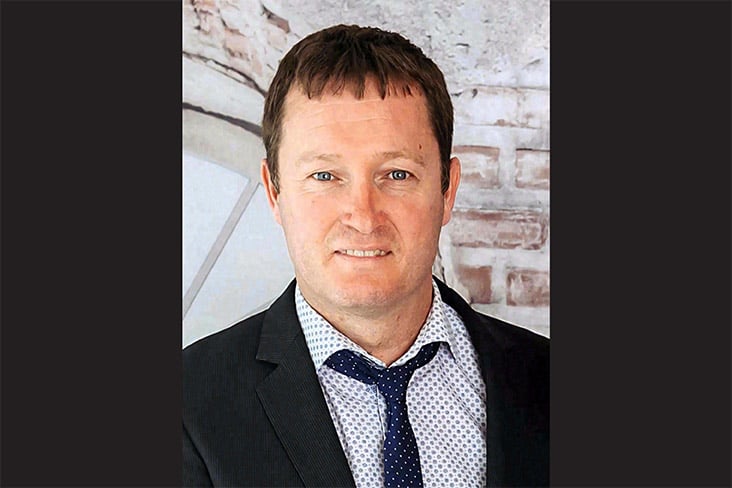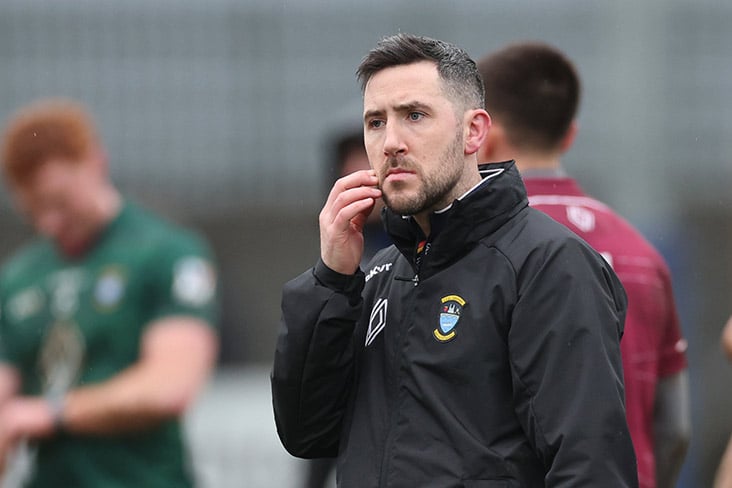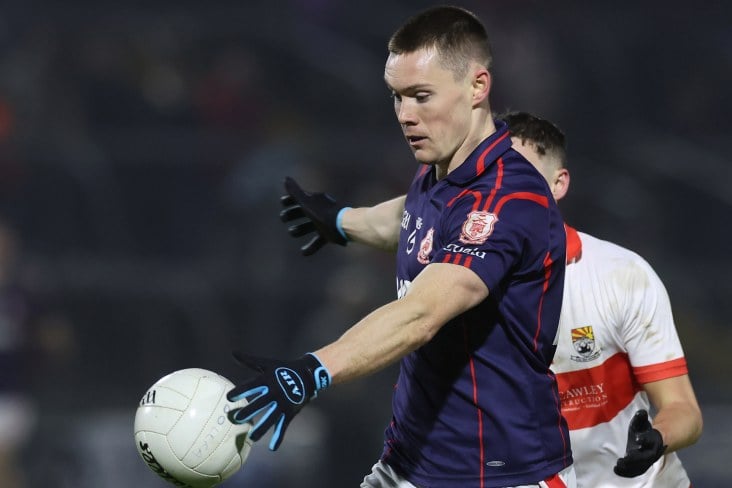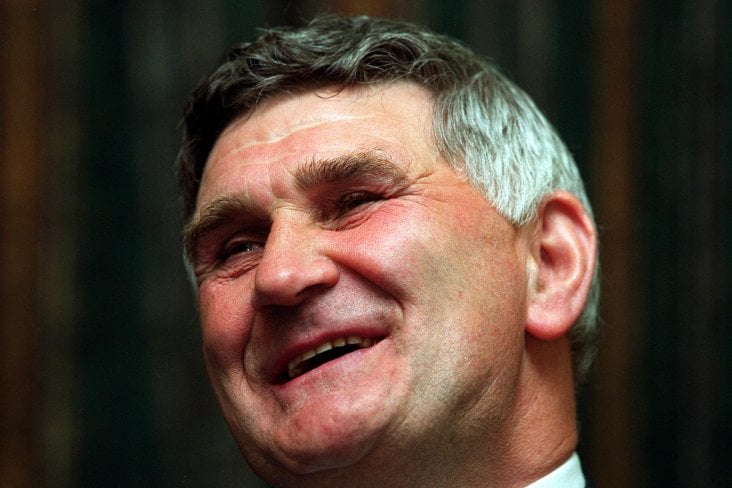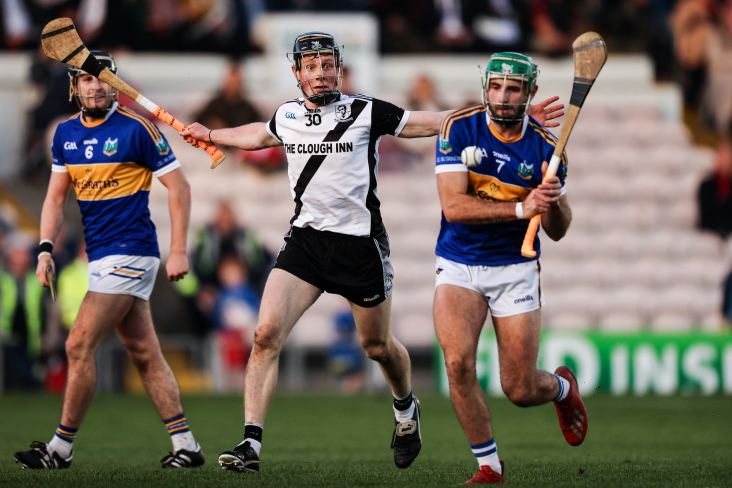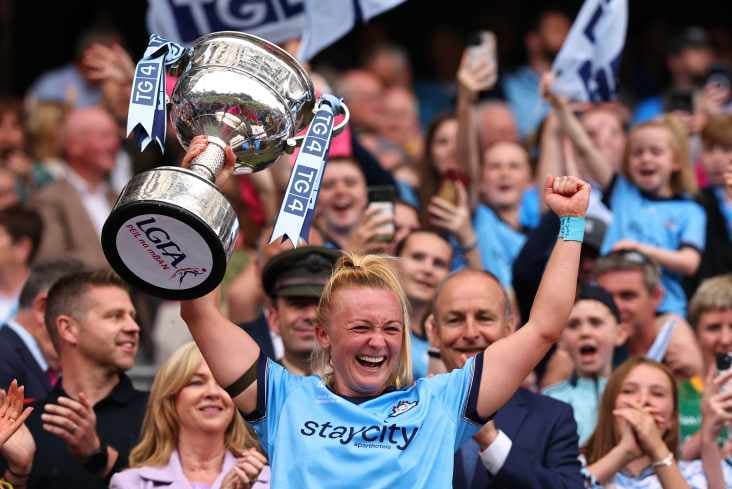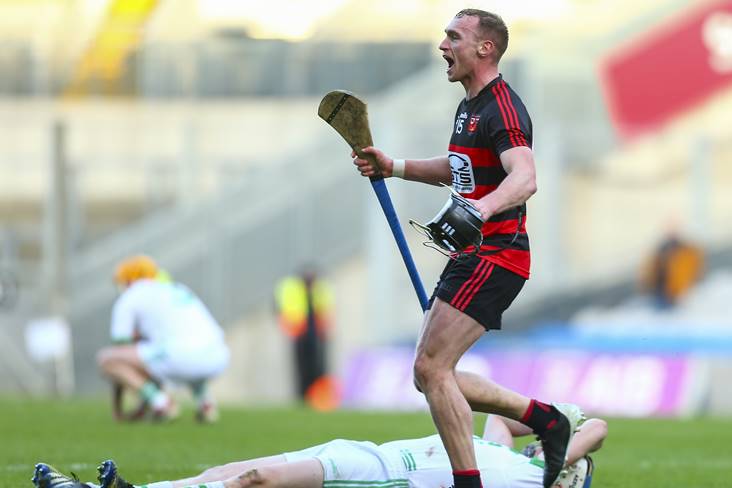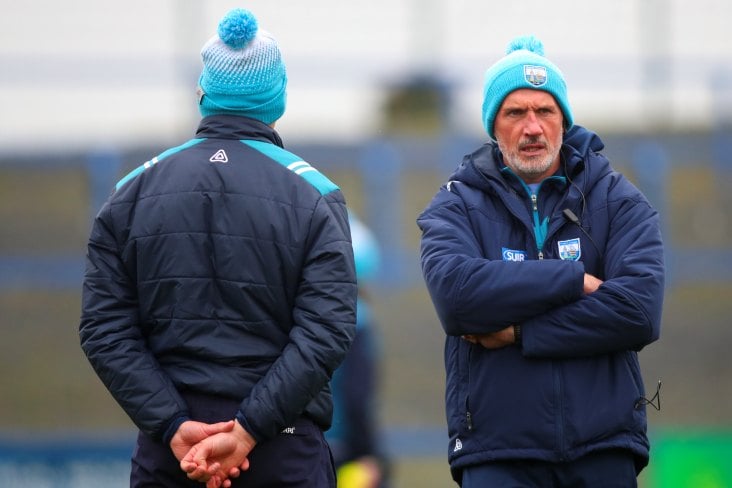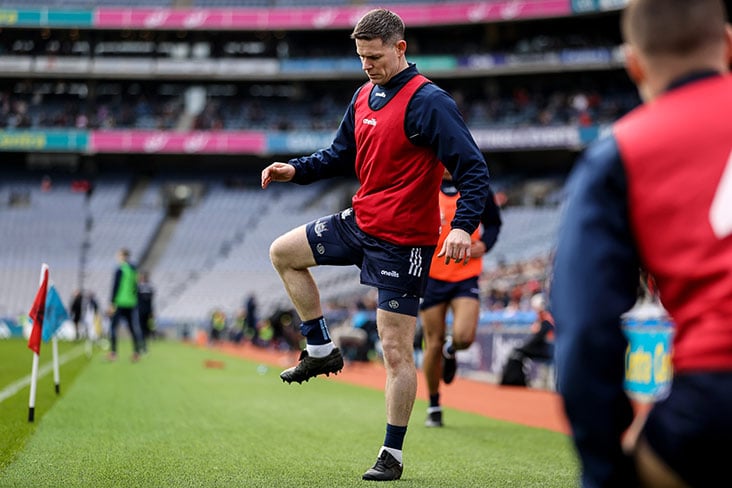A word from the physio
September 02, 2010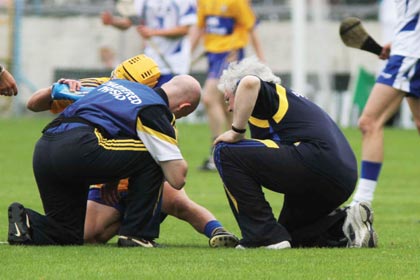
Diarmuid Hogan attends to a Clare player.
There are many bodies and individuals working behind the scenes to ensure that our teams make it out onto the pitch in tip-top shape, best prepared to produce an optimum performance. The team physiotherapist plays a crucial role but rarely receives any credit or recognition. We decided to get an insight into the physiotherapist's world from leading physiotherapist, Annette Shanahan, whose practice Abbey Physio, has a specialist sports injury treatment division. Abbey Physio's current clients include the Clare senior, U21 and minor hurlers and footballers, which demands a lot of time and effort to ensure a good service is given to all the players.
Abbey Physio has a multi-disciplinary team of health professionals, providing early and effective services in the assessment, rehabilitation and management of injuries and disability and the identification of potential harm. Abbey Physio provides professional services from chartered physiotherapists, ergonomists and occupational health and safety consultants. They treat individual patients, sports teams, work-related injuries and rehabilitate patients with a variety of medical conditions. Their specialist areas of expertise are musculoskeletal and sports injuries, rehabilitation, occupational health and safety, training and education. The goal of the practice is to restore the injured person to an optimal functional state, applying the highest scientific standards and proven evidence-based treatment. The primary focus is on improving function, competence, self-reliance and quality of life. The aim is to deliver this expertise with effectiveness and energy. Abbey Physio has facilities in Limerick, Ennis and Dublin. Annette has a long association with the School of Physiotherapy, Royal College of Surgeons at St Stephens Green, Dublin.
Abbey Physio provides a wide range of physiotherapy services in its purpose-built city centre facility which is wheelchair accessible and offers free parking. Additionally, they provide a home-call service where they can call to your home and provide treatment.
All physiotherapists retained by Abbey Physio are members of the Irish Society of Chartered Physiotherapists (ISCP) and as such, are part of an ongoing training and mentoring program which assures that staff are fully trained and undergo continuous professional development at all times.
Having served as vice-president in 2007, Annette Shanahan (who herself lectures at the Royal College of Surgeons) is currently in the second year of her two-year term as president of the ISCP. She has been a member of the representative umbrella organisation since it was formed in the early 1980s. "The ISCP is the world-recognised professional body for physiotherapy and physical therapy in Ireland, looking after the interests of the patient primarily but also the members, who are qualified chartered physiotherapists," she explains, "We have over 3,000 members and these are required to maintain a comprehensive continuous professional development portfolio and only Chartered Physiotherapists are recognized for employment in the HSE."
Annette is keen to stress that physiotherapy provides healthcare from the cradle to the grave: from ante-natal care to expectant mothers and treatment to premature babies through the developmental stages of the childhood years, in all sections of medicine. Through adult life, physiotherapy treatments incorporates orthopaedic patients, musculoskeletal and bone health, for sports injuries or care after joint replacement surgical procedures, treatment for those with heart or lung problems, broad surgical interventions, work in intensive care units, neurological treatment for those who have suffered strokes or suffer from conditions such as MS or Parkinson's Disease, learning disability, care for the elderly, gynaecology, and veterinary treatments ranging from elite racehorses to the smallest pet.
Regarding sports injuries - the work for which Abbey Physio is particularly renowned - Annette continues: "It's the aspect of our work that is best-known among the sports enthusiast and many physiotherapists in each county throughout Ireland will be involved in some form of sport. I recently coordinated the Physiotherapy services for the 2010 Special Olympics in Limerick and Clare. It was an exceptional event and all athletes were marvelous participants. Often, physios look after their local GAA team and that can cross county boundaries. I had nearly ten years with the Limerick senior hurlers in the 1990s and 2000s and was also with them for their three U21 All-Irelands. My colleagues here at Abbey Physio - Shane O'Regan and Edwina McCarthy - are physios to the Clare hurlers, while Diarmuid Horgan looks after the minors and U21s, and Diarmuid Divinney is involved with the Clare footballers. "Between training sessions and matches, it's very demanding work and we have a panel of other Chartered Physiotherapists here, all of whom are able to step in and provide excellent service. We're kept extremely busy with Clare and also with local clubs and we get a lot of referrals from Limerick clubs. This practice has a long association with the GAA through our intercounty involvement over the years. It has been a great experience. You're involved with the team from pre-season right through to the end of the championship and you're completely involved in the whole experience. You're on the team bus, in the dressing-room and you're a big part of the whole thing. In many ways, a Chartered Physiotherapist has a very privileged and responsible position because you are part of the team and there are a lot of people who would love that opportunity. It requires the height of confidentiality and integrity, as your duty is to every one of the players, to ensure they are afforded every chance to avoid injury and to recover speedily if unlucky enough to be injured. Management rely on your judgment."
As well as sports injuries, Abbey Physio clinic also works closely with companies treating individuals who have been injured at work and a lot of the sports rehabilitation principles are applied to non-sports patients. By applying the same techniques and motivations, Annette has found that she gets quicker responses. "We apply sports injury principles to all conditions and this certainly reduces the impact of injuries across the board. It's important to seek expertise, advice and the correct treatment straight away after an accident or an injury. People tend to wait and see how the injury goes on its own, but ideally, a speedy response reduces the extent of the damage and accelerates return to work, maximizing the chances of a fast and full recovery. It's cost-effective. "
What are the most common sports injuries encountered? "It depends on the time of year. When the ground is soft and yielding, the surface slippy, you can get a lot of ligament, cartilage and cruciate injuries. When the ground is harder, there are a lot of joint inflammations caused by the increased impact. Most GAA injuries are lower limb, but hurlers get a lot of shoulder injuries as well as all the classic impact injuries - finger dislocations, minor fractures, cuts and bruises. Of course hamstrings and back injuries are the bread and butter for the profession. One area we address is prevention, with pre-season assessment and individual customised programmes for players now the norm. We focus on flexibility and posture, core stability, strengthening, including addressing the adverse effects of sedentary lifestyles. This can be as simple as reducing the amount of time spent in sitting postures - either at work or school or when driving. All these approaches help to aid the player to self-manage and avoid injury, which is our goal too. Tweet
